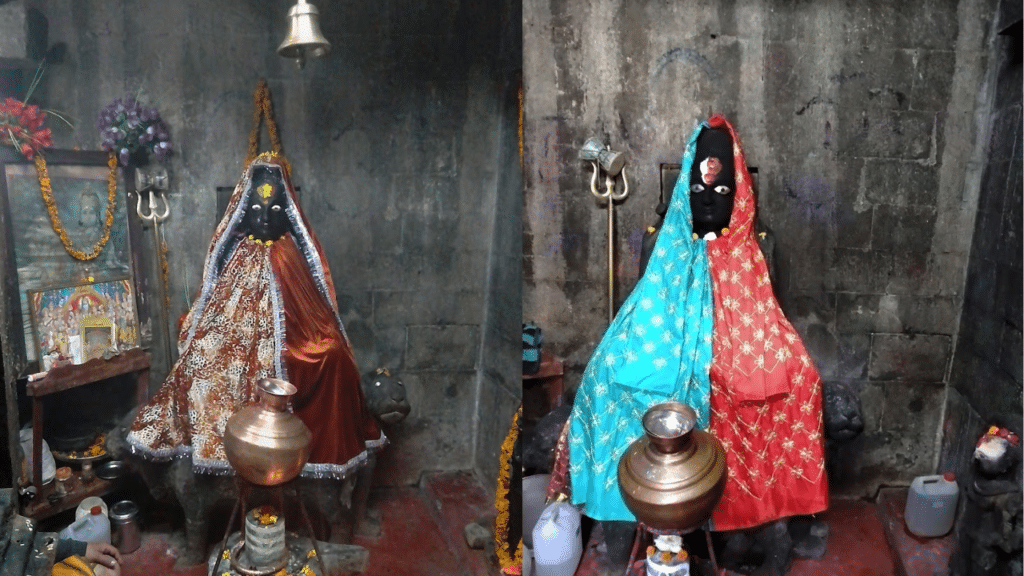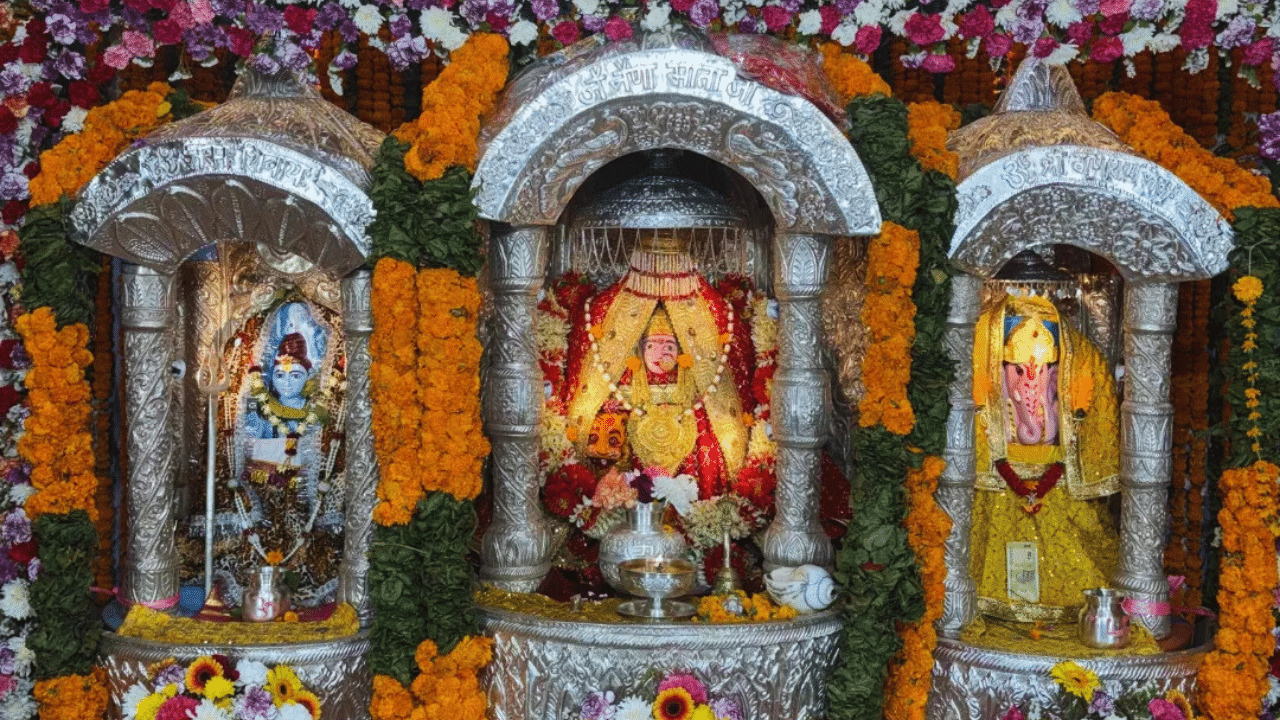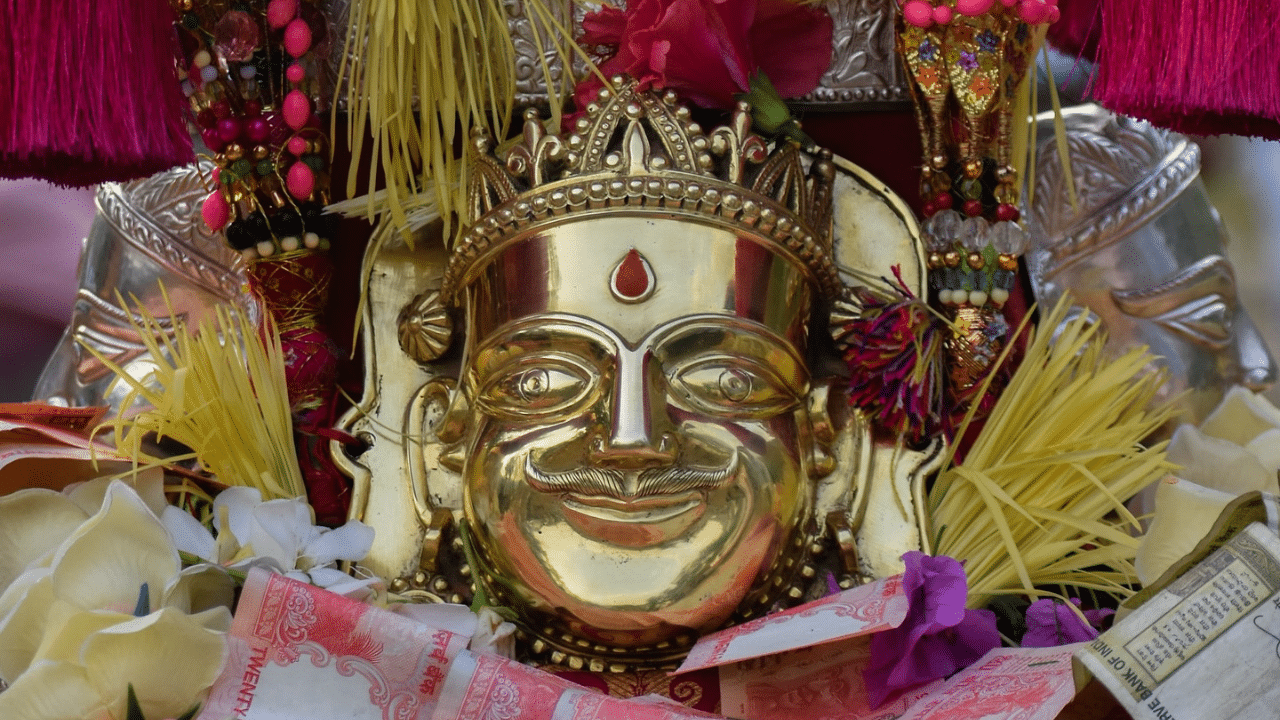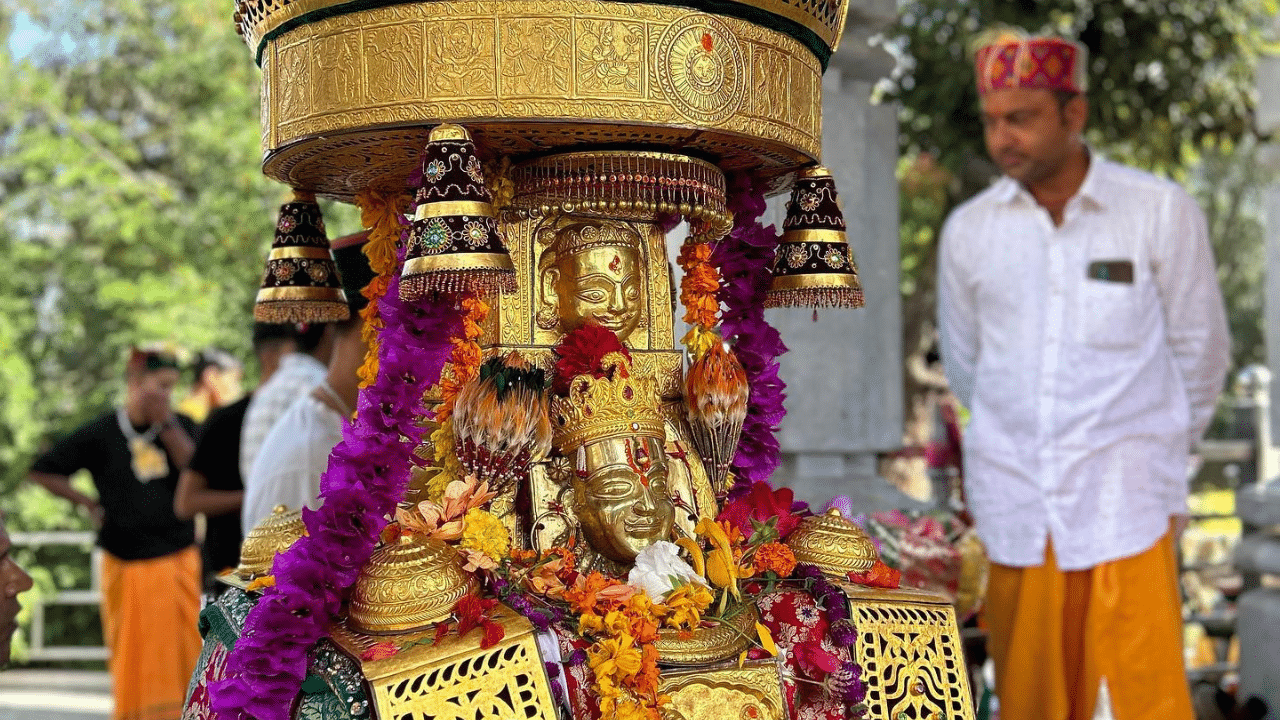History of the Ardhnarishwar Temple
Of the more modern temples, the finest from an artistic standpoint is the sanctuary of Adhnari, the stone image of which represents Shiva and his consort Parvati, the right half being devoted to the former and the left to the latter. Shiva is portrayed with knotted hair, a necklace of human skulls, a serpent, a musical instrument in one hand and a damru in the other. Parvati is shown wearing a diadem, an earring, and a nosering.

To the main image is joined a slab on which the vehicles of the deities— the bull and lion—are carved. The whole measures 4’4″ high by 3’3” broad. On the right and left, respectively, are images of Bhairava and Hanuman. The building is ascribed to Kalesar Mian of Mandi but is incomplete. It consists of a cella, porch, and sabha mandap, and the carving throughout is rich and of considerable artistic beauty. Unfortunately, the shrine -is in a poor state of preservation.
The Salenu rock inscription
The oldest archaeological record in the state is the inscription on a rock at Salénu, about 1-half miles from Manglaur, which is ascribed to the fourth or fifth century. It simply records men that a Maharaja Sri-Chandesvara-hastin, who was the son of a Maharaja Ishvara-hastin and belonged to the family of Vatsa, conquered in battle a Rajjila-Bala and founded a town of which the name apparently was Salipuri, possibly the present village of Salri situated near the site of the inscription… These names are of no historical value as their relationship is unknown.




